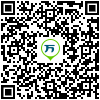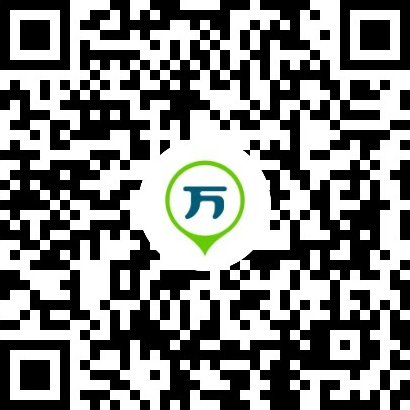Passage 3
For some time past it has been widely accepted that babies - and other creatures - learn to do things because certain acts lead to “rewards”; and there is no reason to doubt that this is true. But it also used to be widely believed that effective reward, at least in the early stages, had to be directly related to such basic physiological (生理的) “drives” as thirst or hunger. In other words, a baby would learn if he got food or drink of some sort of physical comfort, not otherwise.
It is now clear that this is not so. Babies will learn to behave in ways that produce results in the world with no reward except the successful outcome.
Papousek began his studies by using milk in the normal way to “reward” the babies and so teach them to carry out some simple movements, such as turning the head to one side or the other. Then he noticed that a baby who had had enough to drink would refuse the milk but would still go on making the learned response with clear signs of pleasure. So he began to study the children’s responses in situations where no milk was provide
D.He quickly found that children as young as four months would learn to turn their heads to right or left if the movement “switched on” a display of lights —and indeed that they were capable of learning quite complex turns to bring about this result, for instance, two left or two right, or even to make as many three turns to one side.
Papousek’s light display was placed directly in front of the babies and he made the interesting observation that sometimes they would not turn back to watch the lights closely although they would “smile and bubble” when the display came on. Papousek concluded that it was not primarily the sight of the lights which pleased them, it was the success they were achieving in solving the problem, in mastering the skill, and that there exists a fundamental human urge to make sense of the world and bring it under intentional control.
38. According to the author, babies learn to do things which ____.
A. are directly related to pleasure
B. will meet their physical needs
C. will bring them a feeling of success
D.will satisfy their curiosity
39. In Papousek’s experiment babies make learned movements of the head in order to ____.
A. have the lights turned on
B. be rewarded with milk
C. please their parents
D.be praised
40. The babies would “smile and bubble” at the lights because ____.
A. the lights were directly related to some basic “drives”
B.the sight of the lights was interesting
C. they need not turn back to watch the lights
D.they succeeded in “switching on” the lights
四、单词汉译英(本大题共15小题,每小题1分,共15分)
根据给出的汉语词义和规定的词类写出相应的英语单词。每词的部分字母已给出。请将整个单词写在答题纸上。
41. 抵押 v. & n. m _ _ t _ _ ge
42. 合同,契约 n. c _ _ tr _ _ t
43. 商品,货品 n. m_ _ ch _ _ dise
44. 保留,保持 v. r _ t _ _ n
45. 可用的,可获得的 adj. av _ _ l _ ble
46. 声称,认领 v. & n. cl _ _ m
47. 战略,策略 n. str _ te _ _
48. 恐吓,威胁 v. thr _ _ t _ _
49. 幸存,比…长命 v. s _ _ vi _ _
50. 采访,访问,面试 n. & v. inter _ _ _ _
51. 地方,位置 n. loca _ _ _ _
52. 卖主,卖方 n. v _ _ dor
53. 流行,货币 n. c_ rr _ _ _ y
54. 尝试,试图,努力 v. att _ _ p _
55. 整理,安排v. arr _ _ ge
编辑推荐:考试吧:2011年1月自考试题及答案发布专题
2011年1月自考成绩查询时间及查询方式汇总
各地2011年4月自考报名时间汇总(2.9日更新)
·2018年4月自考《外国文学作品选》试卷真题 (2018-4-26 14:32:47)
·2018年4月自考《语言学概论》真题答案及解析 (2018-4-25 10:00:34)
·2018年4月自学考试《语言学概论》试卷真题 (2018-4-25 15:51:18)
·2018年4月自学考试《马原》完整真题答案 (2018-4-20 11:31:22)
·2018年4月自考Java语言程序设计真题及答案汇总 (2018-4-14 14:36:36)
·免费真题 ·模考试题


实用文档 | 入党资料 | 入党申请书 | 入党志愿书 | 个人自传 | 转正申请书 | 思想汇报 | 个人简历 | 简历模板 | 简历封面 | 工作计划 | 工作总结 | 自我评测
个性评测 | 社交评测 | 事业评测 | 运势评测 | 报告 | 实习报告 | 工作总结 | 社会实践 | 心得体会 | 述职报告 | 调查报告 | 辞职报告
法律文书 | 合同范本 | 演讲范文 | 更多>>
英语学习 | 听力口语 | 阅读写作 | 翻译文化 | 趣味英语 | 学习方法 | 英文经典歌曲 | 每日课堂 | 空中英语 | 少儿英语 | 影视英语 | 英文歌曲 | 更多>>
作文大全 | 作文 | 小学 | 初中 | 高中 | 话题作文 | 考研 | 四六级 趣味作文 | 体裁作文 | 记叙文 | 议论文 说明文 | 应用文 | 读后感 | 作文素材 | 名言警句
优美段落 | 哲理故事 | 诗词赏析 | 成语知识 | 技巧 | 写作指导 | 作文点评 | 佳文赏析 | 写作基础 | 话题演练 | 作文教学 | 更多>>

 下载
下载


